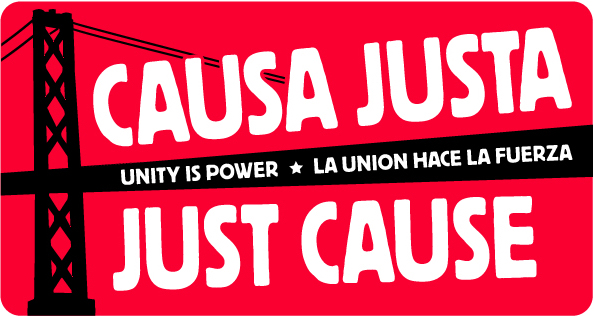By Francisco Ugarte, Senior Immigration Attorney, Dolores Street Community Services
On June 15, 2012, the Obama administration made history by announcing one of the most significant and favorable changes to immigration law in more than a decade – Deferred Action for Early Childhood Arrivals to the United States.
Under this new program, most undocumented youth who arrived in the U.S. before the age of 16, are 30 years old or younger, and who have been physically present in the U.S. for 5 years, are eligible for Deferred Action.
The program was put in place as a result of the courageous and extraordinary political movement of young undocumented people who grew up in the United States but, due to an irrational and inhumane immigration legal system, could not obtain lawful immigration status.
What is deferred action?
Technically, deferred action is a form of discretionary relief, where the government formally prioritizes the way it uses its resources. The concept of deferred action is historically rooted in the law. This new deferred action program greatly expands this principal to apply to a broad category of young people living in the U.S. without lawful immigration status.
What are the benefits of deferred action?
Differed action provides work authorization and the opportunity to remain in the United States lawfully. However, there is no path to citizenship, and there is no right to vote in federal or state elections. Individuals will not be able to petition for other family members. In addition, Deferred Action is discretionary, and may be revoked at any time. Individuals who are convicted of a significant misdemeanor or felony while on Deferred Action status may be at risk of deportation.
What are the basic requirements for deferred action?
1) Arrived in the United States before reaching your 16th birthday;
2) Have continuously resided in the United States since June 15, 2007, up to the present time;
3) Were physically present in the United States on June 15, 2012;
4) Are currently in school, have graduated or obtained a certificate of completion from high school, have obtained a general education development (GED) certificate, or are an honorably discharged veteran of the Coast Guard or Armed Forces of the United States; and,
5) Have not been convicted of a felony, significant misdemeanor, three or more other misdemeanors, and do not otherwise pose a threat to national security or public safety. (*Note that traffic violations, including citations for driving without a license, do not constitute “significant” misdemeanors. However, anyone with any criminal record at all should consult with an attorney prior to applying for deferred action)
How long does the Deferred Action program last?
Under the current program, work authorization under the new Deferred Action program will last for two years. Deferred Action will be renewable after two years, but it is unclear how the renewal process will last. It is unclear whether a different presidential administration will renew the program. Republican presidential candidate Mitt Romney has stated that he opposes this program; however he has not publicly stated he would repeal Deferred Action.
How do I apply for deferred action?
Deferred action applications under this program consist of three separate applications:
1) I-821D
2) I-765
3) I-765WS
The applications are available on the Internet at the USCIS website (which is www.uscis.gov/). Applicants must include documents proving that they qualify for the program, approved documents include –
1) School records
2) Medical records
3) Bills
4) Employment records
5) Tax records
(*Note for other approved documents please consult an attorney)
Copies of original documents are acceptable, so long as they are legible and correct copies of original documents. Applicants should focus on obtaining documents establishing continuous presence between June 15, 2007 and June 15, 2012.
Where can I get free legal assistance in applying for Deferred Action?
Several organizations within the San Francisco Immigrant Legal & Education Network (SFILEN) are providing free legal assistance to prospective Deferred Action applicants who are San Francisco residents, including Dolores Street Community Services, Central American Resource Center (CARECEN), Asian Law Caucus, and Asian Pacific Islander Legal Outreach. In addition, Legal Services for Children provides free legal services for those age 21 and younger. Several other organizations provide fee and low cost legal assistance. Please contact your neighborhood non-profit organization for assistance or referrals to the appropriate agency.
Are there any risks in applying for Deferred Action?
There may be risks for applicants who have criminal records, who have engaged in fraud, or who have falsified their application. Federal immigration authorities have stated that there will be no information sharing between USCIS (the federal agency responsible for processing applications) and ICE (the immigration police) in the application process unless there is fraud, criminal issues, or national security issues.
How do I make sure that I qualify?
Because the stakes are so high, it is strongly recommended that applicants consult with an attorney prior to applying for deferred action.
While there are limits and risks to Deferred Action, this is also a unique and groundbreaking moment for undocumented young people, who earned this victory after waging a long and difficult struggle for some kind of relief. And, though Deferred Action is discretionary, the political power of undocumented young people is undeniable. Deferred Action should be a building block for future immigration reform–where finally, undocumented youth who grew up in the United States can be recognized in the law as equals, citizens, and full participants in our society.
For more information:
Dolores Street Community Services: www.dscs.org
CARECEN: www.carecensf.org
Asian Law Caucus: www.asianlawcaucus.org
Asian Pacific Islander Legal Outreach: www.apilegaloutreach.org
Legal Services for Children: //www.lsc-sf.org

